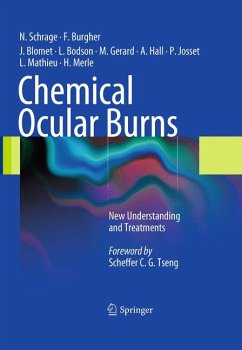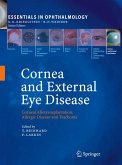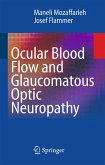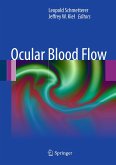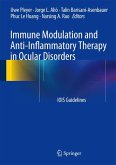More than 25,000 chemical products have the potential to cause ocular burns. Because such burns can result in loss of sight or the need for corneal transplantation, they must be taken very seriously. This book is the first to be devoted entirely to chemical ocular burns. All aspects of the subject are covered, including history, epidemiology, chemical agents and reactions, histology, pathophysiology, clinical signs, medical and surgical treatments, and emergency care. Particular attention is paid to the mechanisms involved in ocular burns and to the links between the chemical reactivity of corrosive agents and the clinical manifestations. Current principles of decontamination are fully explained and the latest treatment techniques are discussed in detail. This book stands at the interface of the chemical and medical sciences. It will be of great practical value to ophthalmologists and doctors in emergency medical and burns units, and will acquaint chemists with the clinical consequences of corrosivity.
Dieser Download kann aus rechtlichen Gründen nur mit Rechnungsadresse in A, B, BG, CY, CZ, D, DK, EW, E, FIN, F, GR, HR, H, IRL, I, LT, L, LR, M, NL, PL, P, R, S, SLO, SK ausgeliefert werden.

